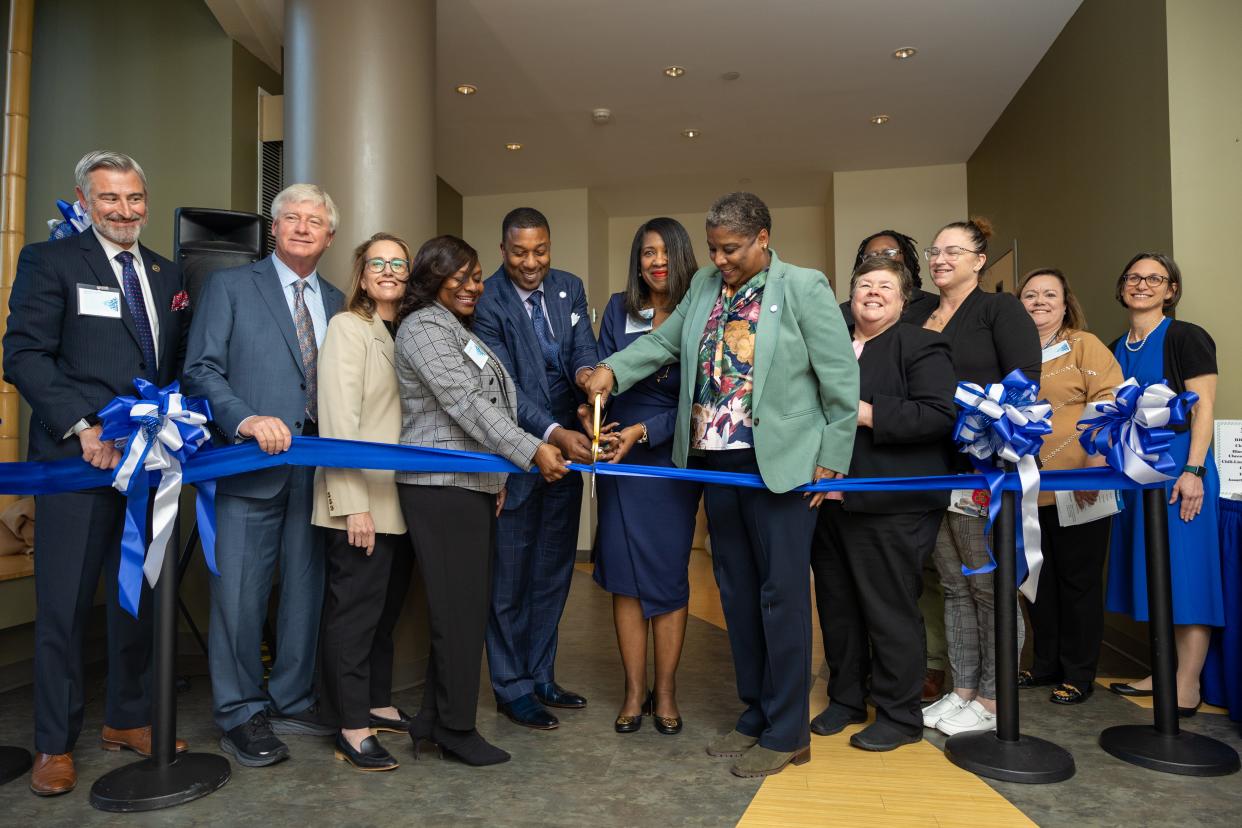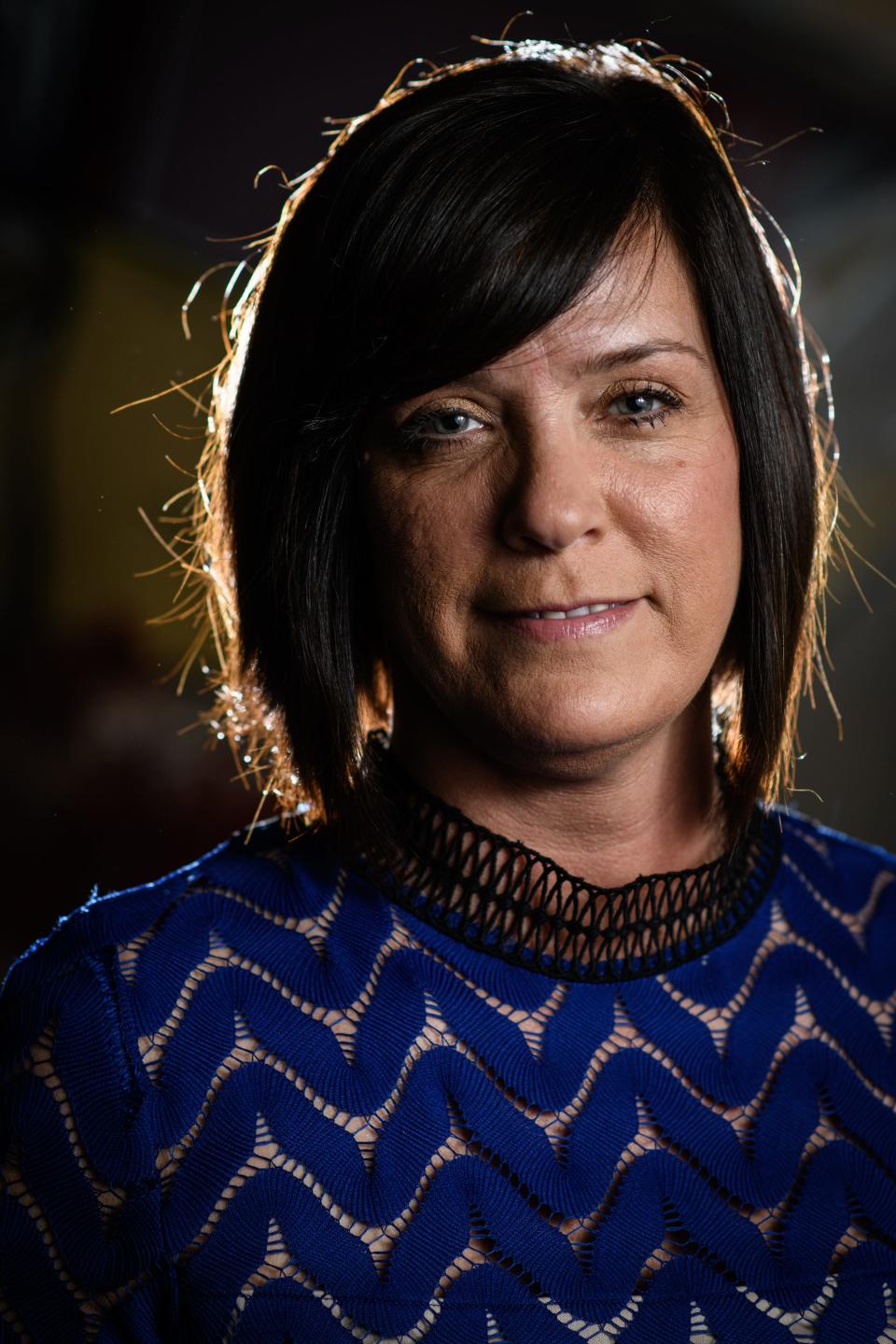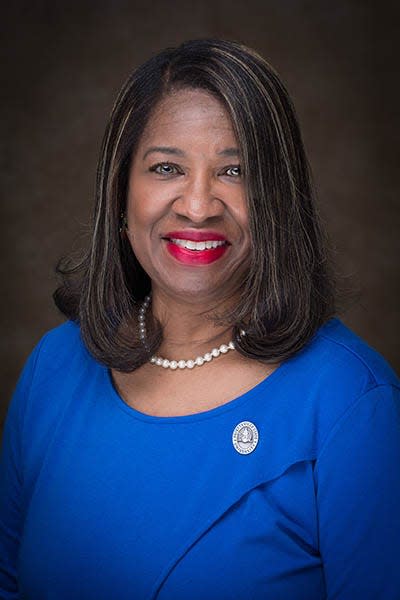When the victim is the crime scene: Fayetteville State to train specialty nurses

Nurses usually help people in some kind of distress or pain.
Sexual assault is a very specific and traumatic kind of hurt. There are nurses who received specialized training for this kind of care: Sexual Assault Nurse Examiners (SANE).
They administer the rape kits that law enforcement agencies use to make a case against an offender.
More:After graduation, about half of Fayetteville nursing students are employed locally
Deanne Gerdes of the Phoenix Center in Fayetteville, formerly the Rape Crisis Center, which runs a hotline for sexual assault survivors, said these crimes differ from others in that “the body of the victim is the crime scene.”

Although a doctor and ER nurse are qualified to do the examinations, the additional training nurses receive through SANE is beneficial, said Gerdes, who works closely with law enforcement and other partners in assisting rape survivors.
More:Money from new state budget keeps Fayetteville's Rape Crisis Center open
“You have to have someone forensically educated in how to collect evidence,” she said. “But you also have to have someone trained to deal with a crime scene who is actually a living, breathing, human being.”
There are fewer than 100 SANE-certified nurses in North Carolina. A new program unveiled Monday at Fayetteville State University aims to boost that number — and will make history, too.
More:How LGBTQ victims of domestic violence can get help in Cumberland County
University officials and others, including Gerdes, took part in a ribbon-cutting for a SANE program in the FSU School of Nursing. It will be the first of its kind at historically Black college or university.
The program launch is being funded through a $1.5 million appropriation from the state.
“The state of North Carolina recognizes the need not only for a higher number of these specially trained nurses across the state but also a more diverse pool of these professionals to help make survivors feel more comfortable during an already traumatic time,” said Dr. Sheila Cannon, associate dean of the nursing school. “Fayetteville State University is in a unique position to fulfill those needs.”

In addition to specialized training, to receive SANE certification a candidate must have at least two years nursing experience, complete dozens of hours of training and clinical work and pass a written exam by the International Association of Forensic Nurses, according to the news release.
The FSU SANE program intends to train 20 of the specially qualified nurses per semester and eventually 60 per year, the news release states. That could potentially be a big boost for Cumberland County and the state.
By Gerdes’s estimate, the county currently has one SANE-qualified nurse — and Gerdes is not even sure about that. She said Cape Fear Valley Medical Center used to operate a SANE program but it wound down due to various reasons, including the COVID-19 pandemic.
She said she and others had been working with N.C. Sen. Kirk deViere to seek state funding but could not secure the amount needed to make a difference. Then they approached FSU — hoping just to partner.
Instead, they found Cannon and others had already been working diligently toward the same goal and had even applied for a federal grant.
Gerdes remembers one meeting with Cannon’s team.
“I literally wanted to cry,” she said. “(Cannon) immediately turned into my hero. This woman was talking my language and wants to really do amazing things.”
Gerdes, speaking on the importance of SANE nurses, said that nurses get into the profession to make things better.
But when it comes to assault survivors: “This isn’t a suture or an option that’s going to get them better. A rape kit is not going to get them better.”
She noted that SANE-certified nurses also served as expert witnesses when it comes to judicial proceedings.
Making a difference
Working as a Sexual Assault Nurse Examiner is a very unique specialty in nursing, says Heather Waleski, a SANE-certified family nurse practitioner who lives in Charlotte. She is one of two content experts that will train nurses in Fayetteville State’s SANE program.
“We have the opportunity to intervene in someone’s life at probably one of the most potentially horrific parts of their life,” she said, “and hopefully make a difference either in the way they are treated in the ER, the resources they get set up once they leave, hopefully in the judicial process but not always. But still to kind of make hopefully more of an impact.”
Waleski says she when she first became SANE-certified in 2008, it was part of her job.
“I kind of got pushed into it, because we had a lack of nurses at the time,” she says. “I was primarily working in the pediatric ER then and had come back from doing some travel nursing in New York City. And so I saw how they had taken care of sexual assault patients in New York.”
But Waleski realized after her third or fourth case as a SANE-certified nurse that her mentor at the time, who had steered her into the role, knew more about her than herself.
“It definitely became a passion of mine pretty quickly,” she says.
Waleski said the FSU program would give her a chance not only to train new SANE-certified nurses but to mentor them in their careers, especially the first few years. She says that will help retain nurses in the field; she said had been part of mentoring hundreds of nurses since becoming an instructor in 2011 but many of them were no longer practicing.
“Fayetteville State has definitely kind of built up the capacity for us to be able to continue to mentor them after they have left our training, and hopefully decrease that turnover. So we can not only train them but keep them in the specialty.”
She also said that while she had worked with African-American nurses certified in SANE, there were “not as many as we would like.”
‘Up to the task’
FSU Chancellor Darrell T. Allison said at the ribbon-cutting that the SANE program emphasizes two of the university’s core values — preparing students for success and helping the community.
“As much as we wish they weren’t needed, there is a shortage of these specially trained nurses in our state and community,” he said. “Thanks to the exceptional training our current nursing students receive at our university, the state trusted us with the responsibility of filling that need. I have no doubt our faculty and content experts are up to the task.”
Myron B. Pitts can be reached at mpitts@fayobserver.com or 910-486-3559.
This article originally appeared on The Fayetteville Observer: When the crime scene is human: Fayetteville State to train specialty nurses

